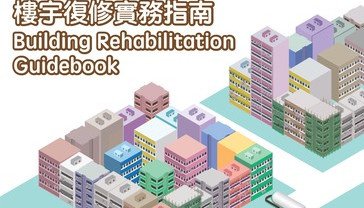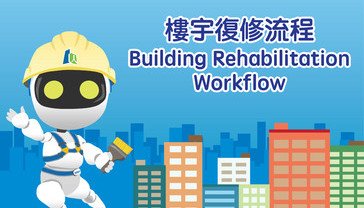2016-10-26
URA announced refinements to the application requirements of the “Smart Tender” (Pilot Scheme)
URA Board approves refinements to “Smart Tender”
to cover all private residential/composite buildings
to cover all private residential/composite buildings
The Board of the Urban Renewal Authority (URA) on 25 October 2016 (Tuesday) approved refinements to the application requirements of the “Smart Tender” Building Rehabilitation Facilitating Services (Pilot Scheme) to cover all privateresidential/compositebuildings in Hong Kong, which aims to help more building owners reduce their exposure to tender rigging during the process of procuring contractors for carrying out common area rehabilitationworks.
Under the refinements, which will take effect today, the Owners’ Corporations (OCs) of all private residential/composite buildings, regardless of the building age and the average rateable value, are now eligible for applying the services of Smart Tender. There will be no handling capacity set for each year of the pilot scheme.
Previously, buildings were required to meet the following criteria for joining the pilot scheme:
Under the refinements, which will take effect today, the Owners’ Corporations (OCs) of all private residential/composite buildings, regardless of the building age and the average rateable value, are now eligible for applying the services of Smart Tender. There will be no handling capacity set for each year of the pilot scheme.
Previously, buildings were required to meet the following criteria for joining the pilot scheme:
- Private residential buildings aged 30 years or above; and
- With an average rateable value of residential unit not exceeding $300,000 per annum in urban areas and $160,000 per annum in the New Territories.
The refinements are introduced in the light of the popular response from building owners and the community feedback since it was launched in May this year. The URA has so far received a total of 28 validapplicationsand has started providing the DIY tool-kits and technical assistance to 19 of them.
A spokesman for the URA said if a large volume of applications are received, priority will be given to buildings with lower average rateable value, followed by those with higher building age.
“Smart Tender” Building Rehabilitation Facilitating Services (Pilot Scheme) is an initiative introduced in response to the Policy Address of the Chief Executive this year.The pilot scheme provides OCs of private buildings with a range of facilitating services including a DIY tool-kit, third-party independent advice and an independent electronic tendering platformfor issuing and receiving tender documents, with a view to strengtheningtechnical support and information available to them, to help minimise their potential exposure of tenderrigging during the procurement process of contractors for carrying out common area rehabilitation works.








